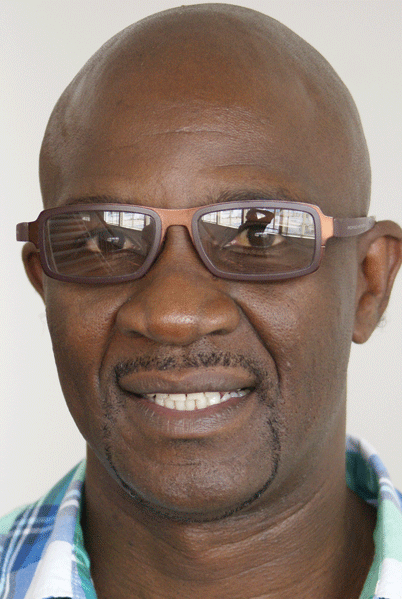
SPEAKING at an interview in Japan in November 2009 the Dalai Lama said with directness and urgency “I have to accept failure. In terms of the Chinese government becoming more lenient (in Chinese Tibet) my policy has failed we have to accept reality.”
It was shocking to hear such words from a man who had become one of the modern globe’s foremost embodiments of patience and the power of never giving up. This year the Dalai Lama turns 79 and he has been the leader of Tibet for 75 years.
For decades he began his day by praying for his Chinese brothers and sisters and constantly asked his fellow Tibetans to reach out to the Chinese people and make better relations.
It therefore, made a lot of sense that many were startled when he remarked (for the first time that anyone could remember) “my trust in the Chinese leadership is this thin now”(as he demonstrated by holding his fingers a tenth of a centimetre apart).
In the past, the Dalai Lama had advocated for what he called “the Middle Way” policy of not seeking full independence from China for Tibet but only a genuine and meaningful autonomy whereby China could control Tibet’s defence policy and foreign affairs, while Tibetans might enjoy the freedom to take care of their culture their religion and their special environment.
However, this idea has gone under a lot of criticism, forcing the Tibet leader to admit that he is ready to step aside and allow others to come up with a new, wiser and realistic approach.
With his candour and frank self criticism, the Dalai Lama might have been reminding the Chinese of what they lack.
Democracy has always been a particular passion for the Dalai Lama as both one of the secular practices of the wider world that Tibetans can now usefully learn from and an idea perfectly consonant with Buddah’s own belief that all beings are equal and each person should rule himself.
- Chamisa under fire over US$120K donation
- Mavhunga puts DeMbare into Chibuku quarterfinals
- Pension funds bet on Cabora Bassa oilfields
- Councils defy govt fire tender directive
Keep Reading
Within his first year in exile (1959) in India, he was beginning to draft a constitution for Tibetans to allow them democracy for the first time in their history (and to allow for the impeachment of the Dalai Lama) in the years since, he has systematically extended the possibility from a democratically elected parliament to a democratically elected cabinet to, in 2001 a democratically elected prime minister in exile (scholarly monk professor Samdhong Rinpoche).
It is not always easy to appreciate from afar how radical this Dalai Lama is in dispensing with any tradition he feels to be outdated (he is sometimes more radical as well as more open to other view that the conservatives in his own community would like).
Over the decade he was always been adept at pointing out, logically how Tibet’s interest and China’s converge; bringing geopolitics and Buddhist principles together, in effect and arguing at syllogistically, for how the very notion of enmity is not only a projection, nearly always but, in today’s interconnected world, an anachronism.
However, now with the skill of one trained for decades in dialectics and personally familiar with the last few generations of Chinese history, he seems more and more to be holding the Chinese government up against its own principles.
For example in Tokyo its pointed out “chairman Mao when I was in Peking said the communist party must welcome criticism. Self criticism as well as criticism from others”.
It is common to hear people asserting that the Dalai Lama is a wise and even heroic spiritual leader who is nonetheless a little out of his depth in the cot–and-thrust of real politic which observes rules and priorities very different from the monastic ones.
Indeed to the surprise of many, he has long maintained that Tibet should, in the future, separate church and state, one reason why, were he to return to Tibet, he would not seek any political position.
The fact that the Dalai Lama’s policy has reaped no evident fruits so far, however, only makes more and more of those concerned about Tibet desperate for another approach.
This lead to the difficult position of Tibetans following the way of peace such as many of them hunger of something more decisive.
Many in the Tibetan community and abroad, centre around the Tibetan Youth Congress, call for nothing less than full independence.
Tibet has entered its second half century as an oppressed nation, this year marks the sixty-sixth anniversary of the arrival of People’s Liberation Army troops in eastern Tibet.
There is a sense that what happens there has implications that extend beyond the environmental consequences. Part of the China Tibet issue, after all, is that it seems to suggest a larger question beyond the geopolitical.
How much can anyone live on bread alone and to what extent does some sense of inner wealth either trump or at least make sense of all the material riches we might gain?
It is no surprise, perhaps, that more than 100 000 Han Chinese have already taken up the study of Tibetan Buddhism and their numbers are rising quickly.
The Dalai Lama has done his bit by announcing himself semi-retired something like a “senior adviser” (in his own words).
By taking himself out of the equation, he is trying to help the Tibetans who have endured a lifetime of oppression with uncommon patience and fortitude.










